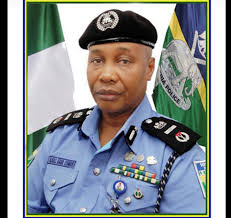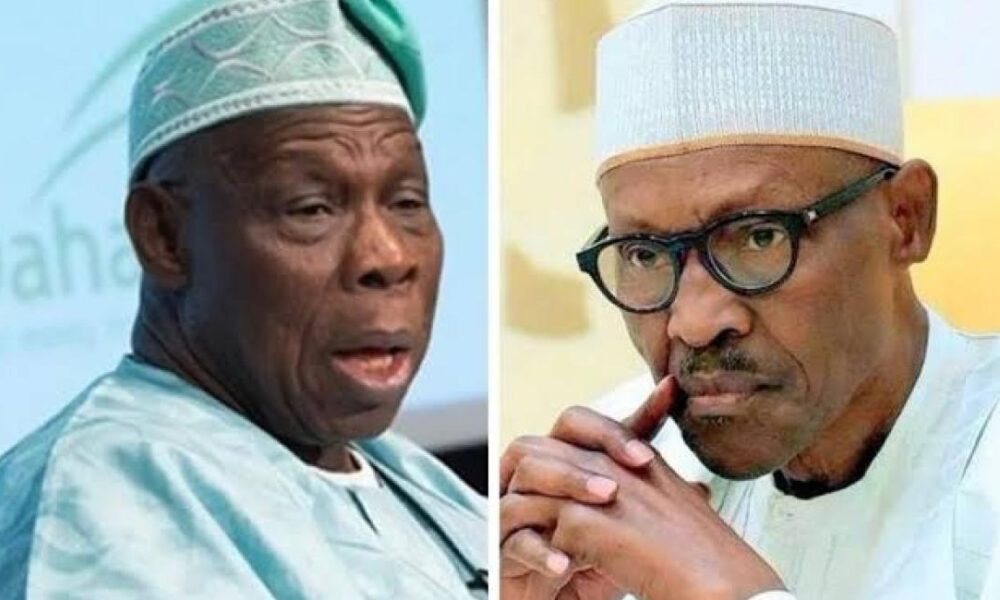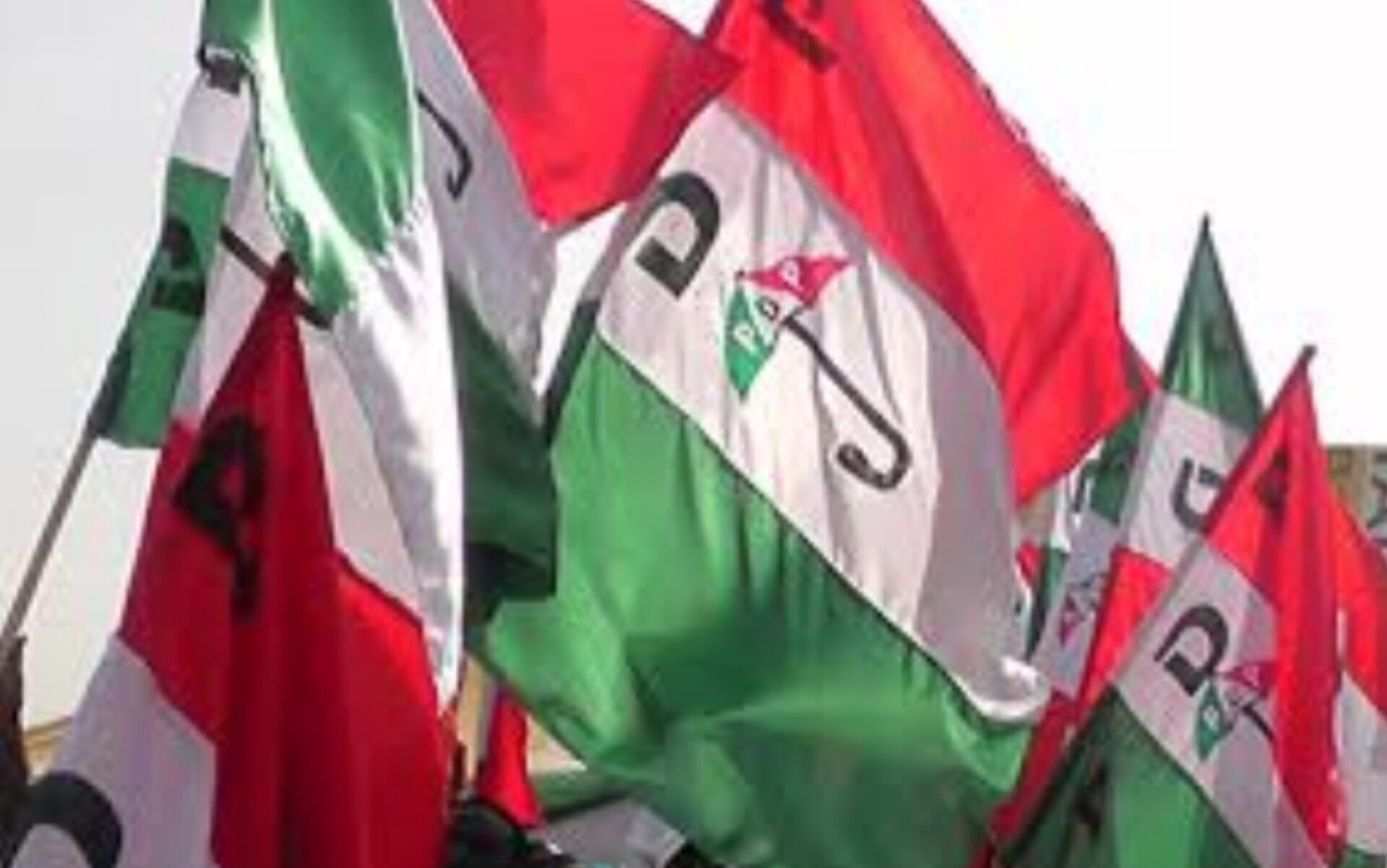By Tunde Olusunle
He was acting in the line of duty, but I came off from my first and only encounter with him, not particularly liking him. It was in December 2016. My very good friend, maybe alter-ego, Tivlumun Nyitse and I were driving into the premises of Louis Edet House Nigeria Police Force Headquarters, (NPF-HQ), Abuja, to catch up with an appointment in the multistorey complex. Donald Ngorngor Awunah of blessed memory, who was the force public relations officer, (FPRO) at the time, a mutual friend of Nyitse and I, had invited us for a morning meeting in his office. Ibrahim Kpotun Idris was the Inspector General of Police, (IGP) and he entrusted the very urbane and cosmopolitan Awunah to help cultivate a more positive public perception for the Force.
Awunah was a perfect fit for the job, a rounded Nigerian. His mother is Igbo from Delta State, and he began formal education in Ogwashi-Uku his mother’s birthplace. He had regular conversations in fluent “Delta Igbo” with his mother. His father was Tiv from Benue, and he obtained his first degree from the University of Lagos, (Unilag). He underwent the National Youth Service Corps, (NYSC) in Jos, Plateau State and his career in the police took him around the country and beyond. He had friends around and about.

Don Awunah took every assignment very seriously. Nyitse and I are senior and experienced mass communications professionals and Awunah believed his official brief will be enriched by our insights. On a regular basis therefore, he compelled us to come have “coffee” in his office so we could exchange ideas. He always jocularly threatened Nyitse who shared his official accommodation, with eviction and we all had good laughs. Indeed, he received approval from his Principal to have us accredited as “media consultants” to ensure seamless access into the restricted FHQ. And so on this day, we had been cleared at the various checkpoints en route the premises of the organisation when we were stopped by security personnel in plain clothes. They said they had “orders from above” to deny us admission into complex, for two hours. We wouldn’t know what was going on therein and nobody explained to us.
One of them gestured conspiratorially to a prosperously-built top cop who was pacing about in the background. Every officer in view deferred to him via a smart salute or an impulsive freeze. That top gun was Usman Alkali Baba who was an Assistant Inspector General, (AIG). I would later get to know that Baba and Awunah were indeed course mates in the 1988 batch of police cadets, much as Awunah was at that time a Deputy Commissioner of Police, (DCP). He eventually made the rank of AIG before his unfortunate transition last year. His last brief was superintendence over the brother states of Bayelsa and Rivers.
Usman Alkali Baba was appointed Inspector General of Police, (IGP), by President Muhammadu Buhari, April 6, 2021, to replace Mohammed Abubakar Adamu. He thus became Nigeria’s 20th indigenous IGP. His appointment for me seemed routine and perfunctory. It could have passed for any regular civil service appointment to the position of Permanent Secretary or Head of the Civil Service of the Federation. One can’t seem to place too many appointees to this position, whose performances were markedly exceptional. Tafa Balogun, the second IGP under the administration of former President Olusegun Obasanjo was probably the last “all action IGP” who readily comes to mind.
In the military too, Ibrahim Attahiru, of blessed memory, the immediate past Chief of Army Staff, (COAS), for example, was one recent occupant of that office who gave us some excitement and optimism about prospects for the rebirth and rediscovery of the Nigerian Army of yore. I’m glad my brother John Obasa, a retired army general, invited me to the first anniversary memorial of Attahiru last year. He knows how passionate I was about Attahiru, much as the departed COAS and I never met. Before him, Paul Dike, arguably Nigeria’s first Air Chief Marshal, (ACM), a four star airforce General was another top military professional I deeply admired. Dike who rose to become Chief of Defence Staff, (CDS), was an exemplary military chief. Megalopolitan, urbane, thoroughly hands-on and amiable, I followed his trajectory from the State House where, as a Group Captain, he was Commander of the Presidential Air Fleet, (PAF), all the way to the apex of his career.
I’m uninspired by President Buhari’s recent celebration of Nigeria’s military’s ascension by three places in the classification of militaries in Africa. According to him, we are now in the Number Four position, up from Number Seven before the advent of his administration in 2015. Wasn’t our military the high-flying African Numero Uno under the leaderships of Ibrahim Babangida, Sani Abacha, through Olusegun Obasanjo? It used to be said those good old days in Liberia, Sierra Leone, Guinea, Somalia, among others, that “the fear of Nigerian troops was the beginning of wisdom.” It has been suggested that Nigeria’s “air show of force” through the flypast over Banjul, of Nigerian airforce jets, January 2017, compelled the intransigent Yahya Jammeh to step down from office. He had previously lost his presidential reelection, after three terms to Adama Barrow late 2016.
Back to IGP Alkali Baba. I’ve always admired southpaws. Maybe that’s one reason I’m having a rethink about my hitherto minimal expectations of him. Former United States Presidents Bill Clinton to Barack Obama, through Works Minister, Babatunde Fashola, to my brother, namesake and silent revolutionary Babatunde Irukera of the Federal Consumer Competition and Protection Commission, (FCCPC), fit into this description. Same for my brother and diligent editor, Bolaji Afolabi, my little nephew Oluwatise Adetona-Alao, and my “grand-daughter,” Jomiloju Aiyegbusi. Maybe because I’m not. IGP Alkali Baba falls into this category of special breeds and somehow I’ve begun to take an interest in his enterprise in the sanitisation of the Force. It may not be as bad, afterall.
True he may be chubby-cheeked and smooth-skinned. But Alkali Baba has so far demonstrated capacity to be professional and independent-minded. Not for him those representations from the high and mighty seeking preferential postings and placements for their wards or candidates. You report and serve wherever it is you’ve been deployed as a police personnel. He can be strict and tough and has evidently prioritised professionalism and discipline, both imperatives for a respected and respectable Force. He is cognisant of the uninspiring public perception of the Force, arising from the indiscretions and lawlessness of just a fraction of personnel in the organisation. He’s not sleeping over this reality.
The propensity of some officers towards indiscipline, misconduct and overzealousness, are regularly coming under his direct binoculars. Extortion of road users and members of the public, roughing up and manhandling of law-abiding citizens, the penchant for bullying by some cops at the slightest provocation in certain instances, are beginning to catch his attention. The social media has been a notable enabler and Alkali Baba is taking advantage of the opportunities it offers in detecting and recalling such errant characters.
More frequently than in recent memory, Force Headquarters plays host to erring operatives who are paraded before the cameras and summarily disciplined before the public. The rule books are diligently applied and defaulters have been dismissed from service, demoted, have their promotions delayed, or sanctioned as their offences may require. They are subsequently handed over to appropriate security agencies for appropriate interrogation and further punishment as may be necessary. Such reprimands are to serve as deterrents to potential offenders. There is no hiding place for them under the sun.
I also get a feeling that Alkali Baba is taking the matters of remuneration, motivation, reward and promotion in the Force very seriously. I understand that the pay-packets of officers and men enjoyed a 30% fillip last year. He is equally concerned about appropriate placement of members of the Force as evidenced by their elevation, as and when due. There seems to be new synergy between the Force, and the Police Service Commission, (PSC), now headed by Solomon Arase, a former IGP himself. Arase for me, holds the record of being the most accessible holder of that office. As serving IGP, he took his calls and responded to text messages. He refused to outsource his responsibilities preferring to be first to get the information for good, or for not so pleasant. Issues of promotions can be quite touchy and emotional and one is glad the Alkali Baba regime is managing this. It’s heartwarming that some good friends in the system have earned their ranks under Alkali Baba’s watch. I should betray my interest here, because I have good friends who have been beneficiaries at various levels.
Not a few times have I recently gleaned reports too, of the payments of entitlements to families of service personnel who are felled in the line of duty. This is one area the NPF needs to reform as a matter of urgency and priority. Figures often quoted as gratuities for professionals who lose their lives for the rest of us to live, are ridiculous jokes, juxtaposed with existential realities. Service to fatherland should not be rewarded with the manner of measly tokenism which retiring cops or the survivors of those who are caught in the line of fire are paid. This is one issue requiring urgent review and re-evaluation by the police authorities under the Alkali Baba regime.
Alkali Baba we understand, has been gifted a two-year extension by the President which should keep him in office till 2025. His successors, according to a new legislation will be appointed for a term of four years each. This accords the incumbent IGP ample latitude to pursue, implement and entrench multilayered reforms in the Service. The Alkali regime has been commended for providing accoutrements for serving personnel, for example. I’ve visited very senior police officers on their desks, who personally furnished and equipped their offices, all the way to sanitary ware. This and of a whole lot of other issues require remediation in the Force for which should be initiated by a proactive IGP.
Substandard will be a mild description of the quality of official accommodation in place for our police personnel. There are frequent expositions on this subject in the media and the matter commends spontaneous action. For all their exertions in the rain and sun, on the streets and lonely highways in an era where policing is at best manual and somewhat pristine, these compatriots should retire each day to liveable homes. The same applies to operational automobiles imperative for the mobility and effectiveness of serving personnel. A sustainable template must be developed for the management of such assets which rapidly fall decrepit ever so often. Regular training, retraining and tune-ups are imperative for officers and men. These needn’t wait until there is a national emergency, an election or an invitation for participation in a foreign mission. Nigerians earnestly look forward to a holistic makeover for our police force, to enhance performance, effectiveness and acclamation at home and abroad. The ball is on your side of the field, IGP Usman Alkali Baba.
Tunde Olusunle, PhD, poet, journalist, scholar and author is a Member of the Nigerian Guild of Editors, (NGE)




